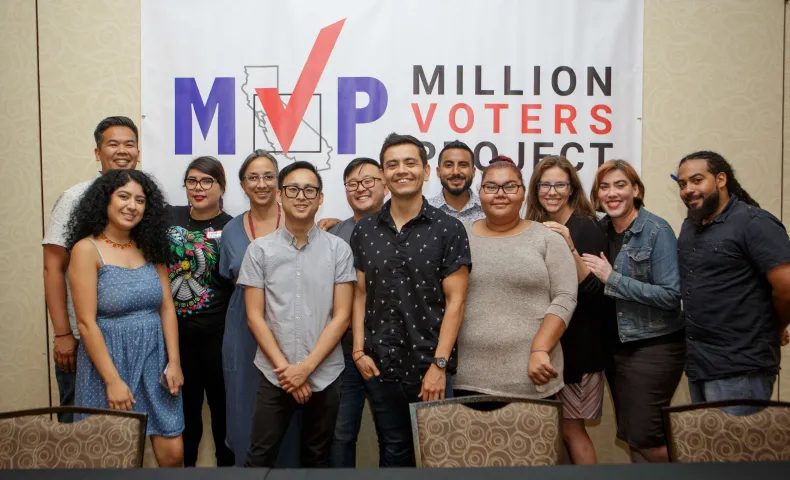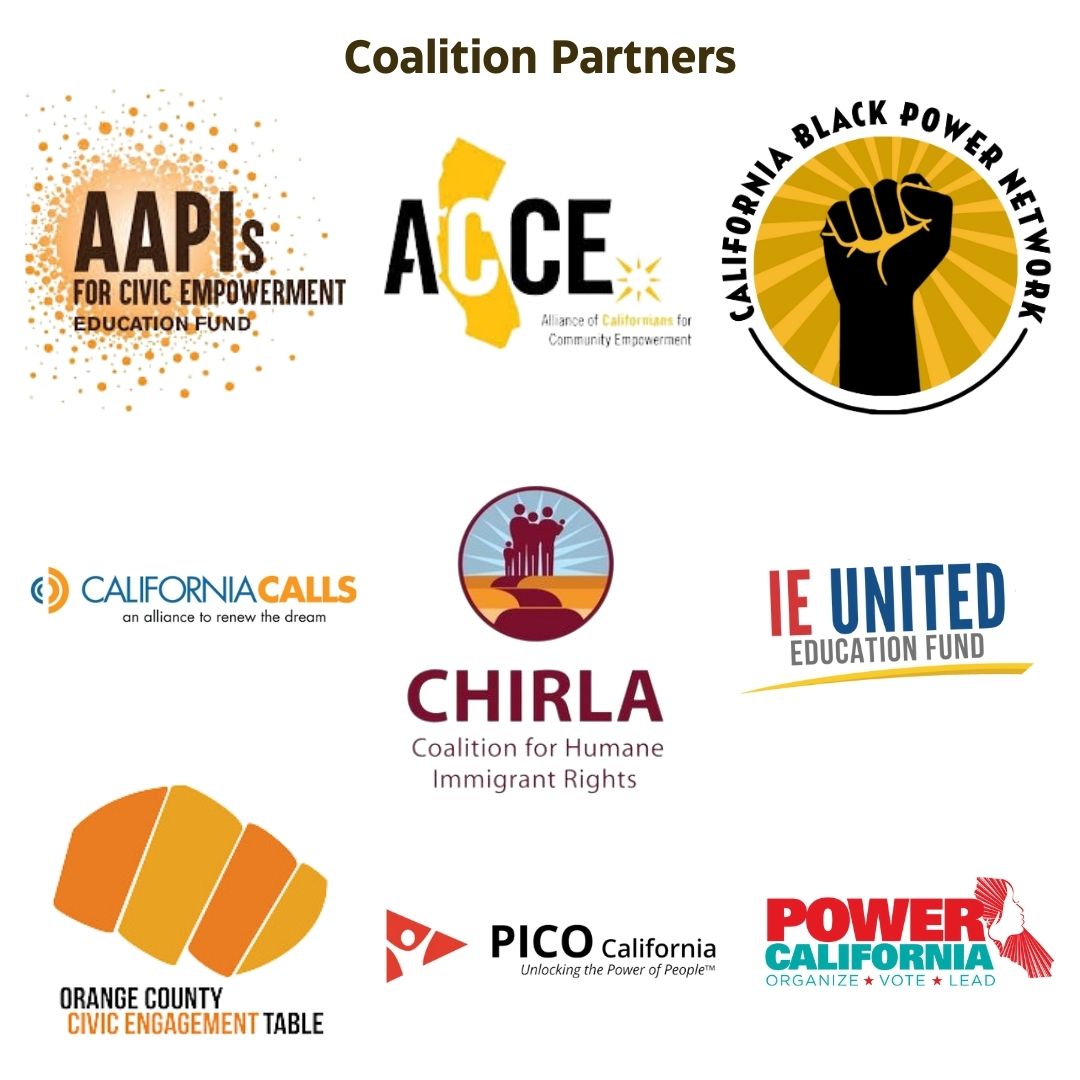 Photo Courtesy of Million Voters Project
Photo Courtesy of Million Voters Project
A Shared Vision for Building Community Voice
“All in for all of us.”
That’s the tagline for a broad-based coalition of groups that are working together to make sure California voters are more representative of the unrivaled diversity of the state. At a time when disparities in voting continue to mean that the voices of too many California communities are not reflected in government and elections, the Million Voters Project (MVP) is seeking to realize the promise of a multiracial democracy. Its focus: mobilizing low-income communities, people of color, immigrants, and other underrepresented populations to vote and have a say on issues that affect their lives.

As a multiracial, multi-generational alliance of organizations and networks with deep community roots, MVP also is showing what works to bring diverse constituencies together in pursuit of a shared vision. The Haas, Jr. Fund recently spoke with MVP’s director, Amado Uno, about the project’s work, its approach to coalition building, and how funders can best support organizations and movements to work collectively for change.
Uno joined MVP in 2017 after two decades of working to build multiracial, multi-sector coalitions and waging campaigns that improve the lives of low-income communities of color. Prior to that, he was a senior advisor and political director at the Asian Pacific Environmental Network.
Q: How and why did the Million Voters Project come together?
Uno: The Million Voters Project was founded by Anthony Thigpenn (founder and president of Haas Jr. grantee partner California Calls) in collaboration with leaders of several statewide community organizing networks. It was rooted in a vision that we could transform California’s electorate to better reflect the state’s diversity by turning out one million voters to the polls around a justice agenda. Additionally, power building organizations can form a strong multiracial coalition to unite and amplify the influence of community-based organizations in low-income communities and communities of color, advancing our Long Term Agenda with key structural reforms such as Schools and Communities First, which would generate more funding for schools and local governments.
Q: Why is working in coalition so important for the MVP partners?
Uno: What makes MVP unique is that each of our partners recognizes that we have the potential to achieve more if we develop a holistic approach to the issues facing our communities and wage campaigns to improve the material conditions of our everyday Californians. One of our most compelling indicators of success is that MVP has built a base of 2.1 million voters, enough to swing a statewide election in the country’s most populous state. Year in and year out, MVP deploys the biggest ground game in the state built on a model of integrated voter engagement that assures that people are educated and informed about the issues in our communities year-round.
Q: What’s the secret to holding together all of these powerful and independent groups?
Uno: I think there are several reasons for MVP’s success, including deep trust among MVP’s leadership, an aligned theory that we can build something more powerful together and a shared love language of strategy. MVP has benefitted from our leadership being in relationship with each other for years—or in some cases decades—to help create a solid foundation for MVP’s success. MVP partners are also deeply committed to expanding California’s electorate and advancing a shared narrative of government care and inclusion of our communities. And the results are encouraging. We consistently mobilize voters at a rate that exceeds the average turnout of statewide voters. That speaks to the power of supporting trusted messengers across the MVP network who are organizing their neighbors and family members to get out and vote.
Q: What have you learned about what it takes to lead a coalition like MVP?
Uno: An important principle for me is that I am accountable to the nine partner organizations of the Million Voters Project and we are collectively accountable to the communities that we organize, including faith-based communities, Asian American and Pacific Islander communities, young people, immigrants and refugees, and Black Californians. This means working to better understand the interests of individual partners and communities, increasing my tolerance and discomfort to effectively navigate disagreements, and developing greater confidence in my ability to lead and be led in a multiracial context. I tend to pay particular attention to two elements that have the potential to erode trust within coalitions—who gets the resources and who gets the credit. For example, we have intentionally structured our budget so that a majority of MVP’s resources goes directly to our partner organizations.
Q: What’s your message to funders about how to support more groups to work in coalition?
Uno: MVP doesn’t exist without our nine amazing partners, and our partner organizations don’t exist without a strong and powerful local organizing ecosystem. Organizing and power building will always be the heart and soul of MVP and we need funders to continue to intentionally support local organizing and local power building. That is the bread and butter of coalitions like ours. And we need strong statewide infrastructure for organizing and advocacy on issues affecting low-income communities and communities of color. Practically, this means that funders need to better understand the state and regional ecosystem and provide the resources necessary to support coalition work, in addition to resourcing the amazing work of individual organizations.
Q: Any other secrets to successful coalition building?
Uno: One of the secrets to MVP’s success is that we laugh a lot. Occasionally at each other but mostly with each other. The zoom chats are epic—like difficult to facilitate the meeting epic. Our in-person meetings are a combination of tough love banter mixed with brilliant movement strategy. We genuinely enjoy building community together and the culture that we have created and cultivated over the years is one of the superpowers of our coalition.